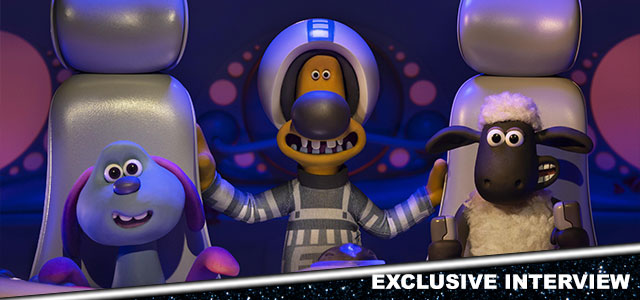
Claymation geniuses Aardman are back with A Shaun the Sheep Movie: Farmageddon. The makers of Wallace and Gromit reunite us with Mossy Bottom Farm's most famous resident, as he teams with stranded alien Lu-La to help get her back home.
We were delighted to catch up with composer Tom Howe (also the man behind the music for The Great British Bake-Off), to discuss the making of the soundtrack and what makes a classic science-fiction score.
Tom, it's great to talk to you! So, I'm based in Bristol, and I understand you spent a lot of time at Aardman HQ in Bristol preparing your score for A Shaun the Sheep Movie: Farmageddon.
That's right. They've obviously got two places there, one of them in the north where they've got an office. And they built me a composing suite there. I was there roughly every 12 weeks writing my music while being stationed next to the editors. So, I'm not sure I saw the best bits of Bristol but it was fun nonetheless. And then they had a wrap party, which was actually in the centre of Bristol. I stayed in a hotel down by the water and that was cool. There were a lot of bars everywhere. It's a great city.
It is indeed. And that's dedication for you when the production team are willing to build you an entire compositional suite. That must have been very flattering!
Yeah it was! I would fly in on like a Sunday night or something from Los Angeles and feel totally out of sync. I'd go in at 8.30 to 9am the next morning and everyone would come in with tea and biscuits and wait for me to do something. [laughs] It's good fun but stressful! But they're a lovely bunch of people. It was great to hang out there and see how they make everything.
Well, I've been looking forward to talking to you because I thought both the film and your music were lovely. I thought the score really accentuated the humour and played on the heartstrings, particularly towards the end. Before we get onto the film itself, just to put things in context, how did you get into film composing to begin with? Was there a particular score or composer that acted as an inspiration for you?
The first time I really noticed film music was all the John Williams scores. Indiana Jones, Superman, Star Wars and things like that in the 1980s. I remember those vividly because I could always come out humming the tune. And that was the first time I really noticed film music.
But I didn't have a plan to go into film music. I started the piano at about four or five, and I got a guitar at 10 and a clarinet a bit later. I then got into orchestration and I was part of a choir at boarding school in Kent. So, I was very into music but when I left all that, I thought I was going to be the next U2 or Coldplay. [laughs] I binned all that classical background and that was my plan.
I was trying to write songs like that and it didn't work, but I then signed as a songwriter to Sony. I was writing songs just before the music industry went off the precipice – this was the very early days of Pop Idol and all that jazz.
Can I just say that U2 and Coldplay's loss is our gain in terms of film music?
[laughs] But it's funny the way things work out. Do you remember Darius Danesh? He became an overnight sensation on Pop Idol and suddenly that's the way the industry went. Things suddenly became very tough overnight. I was teaching schools around London, piano and guitar, and then I got into writing commercials because I could keep writing music while bolstering my income.
I was doing that for a long time before someone I went to university with went on to work for Carlton TV. And they had a tiny little show called Your Shout, which was a 4-minute thing before Neighbours. They asked me to score one, so I just wrote something and sent it in, and it seemed to go down well. That put me on the road.
I find it a lot easier to compose music when the visuals are already there. It's a kind of road map. So being part of the visual world massively helped my creativity. I ended up scoring loads of TV, really, documentaries and stuff – Locked Up Abroad, Banged Up Abroad and so on.
Did you also do the theme for The Great British Bake-Off?
Yeah, all the music in Bake-Off is mine. [laughs] I did a 90-minute documentary for BBC4, and the next thing the director went on to do was Bake-Off. He then called me and informed me he was turning up at the recording studio, which was in my bedroom in my flat. He brought this footage of an old lady, which turned out to be Mary Berry, making a lemon meringue.
I was thinking that unlike most other TV content at the time, it wasn't particularly dark. It looked pretty light, so I proposed some English-sounding strings and marimbas. And then it became a big hit, so I wrote more and more music for it. It was a big point in my career, I suppose. Nice people involved in it too although I'm less involved in it now. They still use all the music, which is rather nice.
Let's talk Shaun the Sheep, then. You scored Early Man for Aardman – was it your pre-existing relationship with the studio that led to you doing the new Shaun movie?
Yes. So, the producer of Shaun the Sheep, Paul Kewley, is a wonderful chap and he was an exec producer on Early Man. Aardman are so unique – all the staff seem to get a job straight out of college or wherever, and they're there forever. All the people who served on Early Man also worked on Shaun the Sheep. Chicken Run as well.
Paul came to some of the scoring sessions for Early Man that I was doing at Abbey Road, and he wanted to talk to me about something new. I didn't think much of it until the premiere of Early Man, when he asked me if I'd be around for drinks the next day. So, we met for lunch and he bought a laptop with him, on which were drawings for A Shaun the Sheep Movie: Farmageddon. And he told me the story and said there's no dialogue, and we want a John Williams-type score.
I was in, even while the ink was still drying on the score for Early Man. They had already been working on Shaun for quite some time, doing storyboards and so on. They weren't definitely going to hire me at that point, but I offered to write some stuff and send it over.
I wrote a 10 to 15-minute suite of ideas and winged it over. And they'd sent me some sketches from the production, so I made some QuickTime movies based around those sketches. So, when I had the picture of the spaceship, that informed the music, and likewise with the farm. On the basis of that, they officially hired me. So, I started about eighteen months ago – I've been on this a long time, writing things and changing things.
I imagine that writing music for animation requires very specific timings and the need to accentuate emotions on a very specific basis. What are the challenges of creating dramatic flow in the music for a film like this?
One of the main challenges is that the picture changes, a lot. So even though I was on the project for a long time, I didn't get a locked cut until two weeks before I scored the film. It wasn't that I wasn't aware of certain scenes, but the timings weren't yet nailed down. Every week you're getting an updated picture, which is the same on every movie – it's a process of refinement.
On this movie, particularly at the start, it was so early that I didn't have much picture. I was working more off the script and storyboards, for which I wrote a whole load of musical suites for the characters. This included Agent Red – originally there were two agent characters, Red and Black, and then Black got swapped into the robot character, Mugg-ins. But I had themes for Shaun, Lu-La, a little motif for Bitzer and the farmer.
I just concentrated on writing melodies that I could later bend – sad, happy, energetic, dissonant. I focused more on that at that stage, rather than whether it was working to the picture. As the film neared completion, I got into the nitty gritty of having to score actual scenes. I knew the feel was right, but I had to get the tempo right, hit the right cuts and so on. As the picture keeps changing, I have to keep refining that, until I get my timings in place.
It is challenging because most of the time on a live-action film, you at least get a cut of the movie that looks like a finished film. It might be a bit long or they're waiting on visual effects shots, but fundamentally there's a cut in place that everyone agrees with. But in this scenario, you've got three minutes of footage that then reverts to three minutes of storyboards. And then you may cut to a black screen indicating that Lu-La is about to come out of the barn and have a conversation with the sheep.
It's a very different process to live action because you don't have a picture. It means writing differently, almost drawing from a catalogue of music that you can later hone.
In terms of instrumental textures, was it always a pre-requisite that you would use, say, a Theremin to achieve that classic science fiction sound?
It's interesting because the Theremin is the instrument that embodies sci-fi. You may not get away with using it in certain scores, because it has an odd sound and people thing you might be taking the mickey. But for Shaun the Sheep, that's what we were going for.
Early on, I knew I was going to put Theremin across various bits because it makes me think of space and sci-fi and all those things. It's a great instrument, odd-sounding, but it puts you in that Bernard Herrmann, The Day the Earth Stood Still kind of environment.
I very much wanted the Shaun the Sheep score to sound like Justin Hurwitz's work on First Man, the Neil Armstrong movie. They used a Theremin in that but they recorded it in a way where it almost sounded like a boy soprano. It doesn't sound like a traditional Theremin. I also wanted the sound to be more like Bernard Herrmann, or Danny Elfman a la Mars Attacks! As in, it sounds slightly over the top. Hopefully that comes across!
It certainly does. You mentioned John Williams earlier and I imagine there was a principle of using a full symphonic orchestra a la John Williams on this score?
Well, obviously the movie starts with that classic sci-fi sequence where the spaceship crash-lands on Earth. And then I had to slightly strip back the tone of the music, because we arrive at the down-to-earth environment of the farm. I then brought in the guitars and banjos one might associate with that setting, while also keeping the Theremin sound in there.
But from there, the score proceeds to get bigger and bigger again until the end, when it's fully symphonic as you say. Often when you get a picture, regardless of whether it's animation or live-action, you're considering the effects, colour and tone of the picture itself, and also how widescreen it is. If you were scoring a Shaun the Sheep TV episode, it wouldn't take a full symphonic orchestra because the general look of it, plus the relatively limited nature of the storylines, wouldn't be necessary.
But because of the way they shot the movie, the general widescreen approach, the scale of the thing, the Farmageddon tower and so on made it appropriate for a symphonic score. But we had to earn that right to get there. You are using the orchestra at the outset of the movie but on a smaller scale, and it just grows from there really.
The lack of dialogue makes everything a challenge because everyone was into what the music was doing, so it's a dream project but also terrifying in some regards. The lack of dialogue forced the music to do a lot of emotional heavy-lifting. Any time a character on screen had a feeling they weren't able to convey with dialogue, the music would have to step up.
In the film, you have the inevitable needle-drops from Strauss and 2001: A Space Odyssey. There's also a brilliant joke involving the X-Files theme, which made me laugh. Is the inclusion of all that music locked into the script from the very start or is it an organic process throwing in those gags?
The Strauss piece was decided very early on. We knew we were going to use that somewhere. And the obvious spot was the moment where the toast is burning and it pops up in a direct visual reference to 2001. There's a scene later on when they go into space, and they used another Strauss piece from 2001, The Blue Danube. That decision came much later.
But the X-Files piece was among several on a wish-list of pieces that we wanted to use. There's also a question about whether you're going to be allowed to use them. There are copyright issues lurking and you have to find out from the publisher and the master rights holder about whether they're happy for the music to be used in that context.
So those conversations are much more fluid because you're not sure if Mark Snow will say yes to the use of his X-Files theme. You're not sure if John Williams will sign off on the use of the Close Encounters of the Third Kind theme, where it's whistled to gain access to the secret base.
There's a scene after the first Strauss moment where the farmer goes into the basement and he's got this mad plan to build this Farmageddon thing. I wrote something for that but the orchestration of it is very much in the vein of Strauss. It's the same kind of instrumentation, because it felt like the two pieces had to connect. Knowing that Strauss was going to be used on the toast helped inform my own writing.
Finally, what is it that you like about writing music for Aardman, and would you like to work with them again?
I would definitely like to work with them again. I was over there recently, and I’m going to be over again in January. They're so personal, and everyone feels like they're working towards something. If somebody doesn't know something, say me, everyone's very quick to own up to it. Everyone is how you find them.
When working with them, I almost feel like I'm part of a family. Aardman has that feel about it. Peter Lord and Dave Sproxton are the company owners, and there were rumours of another studio buying it. In the end, however, they decided to give it to the employees, so everyone there is a shareholder. That creates a different atmosphere, because they all want it to do well and benefit in the long term. That makes it very different and special.
A Shaun the Sheep Movie: Farmageddon is currently on release in Cineworld cinemas. If you enjoyed the movie and our interview with Tom Howe, let us know @Cineworld.

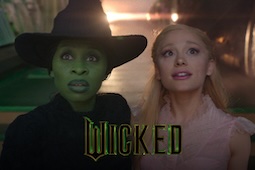
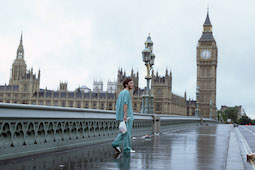
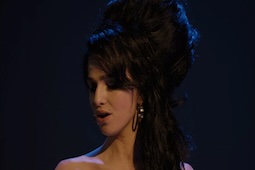
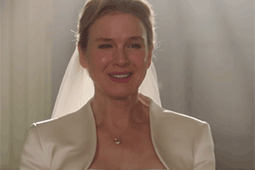
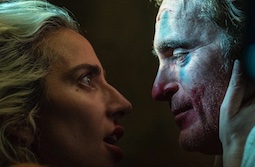
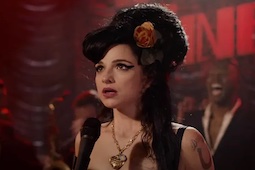
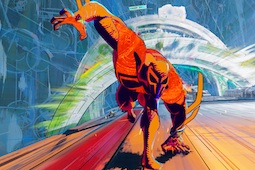
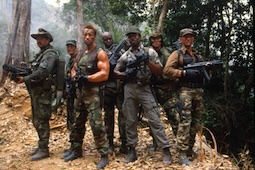

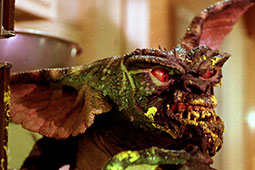



.jpg)
.png)



